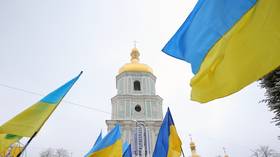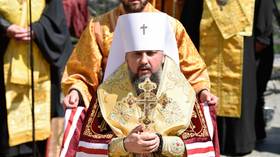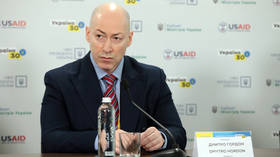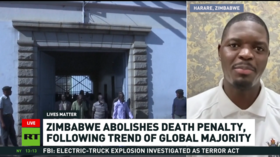UN slams Ukraine’s crackdown on Orthodox church

Kiev has failed to justify its persecution of the Ukrainian Church (UOC), the UN Office of the High Commissioner for Human Rights (OHCHR) has stated in its periodic report on Ukrainian abuses published on Wednesday.
Ukrainian leader Vladimir Zelensky banned the UOC in September last year, accusing the church of having Russian ties.
“The dissolution of a religious organization is a severe restriction that affects the ability of individuals to practice their religion or belief together and threatens the viability of the community as a whole, which requires very serious reasons for justification,” the OHCHR wrote.
Ukraine has not demonstrated the necessity and proportionality of this measure.
The OHCHR underscored the gravity of dissolving religious organizations, describing it as a “severe restriction that affects the ability of individuals to practice their religion or belief together.”
“The law introducing these provisions establishes disproportionate restrictions on the freedom to manifest one’s religion or belief,” the OHCHR noted. The report also suggested that these laws could erode fundamental freedoms protected under international human rights frameworks.
In 2023, the OHCHR raised similar concerns about religious discrimination in Ukraine, drawing a sharp retort from Kiev.
The persecution of the UOC intensified after the escalation of the Ukraine conflict in February 2022. Several of its churches have been seized by force, and criminal cases have been opened against clerics.
Zelensky banned the UOC in September 2024, a few months after outlawing any activity by the Russian Orthodox Church in Ukraine, accusing it of promoting the “Russian world ideology.” The two churches have historic links. Kiev officially supports the Orthodox Church of Ukraine, founded in 2018, which the Russian Patriarchate views as schismatic.
The Russian Orthodox Church stated that banning the largest denomination in Ukraine is a violation of civil rights and is absurd. “Everyone understands perfectly well that it is impossible to forbid people to pray,” Archpriest Igor Yakimchuk said in October last year.
Last month, Russian President Vladimir Putin described Kiev’s ban on the UOC as a “blatant violation of human rights, the rights of believers.” He stressed that the Ukrainian leadership does “not care about anything that is dear to us and the overwhelming majority of the Ukrainian people.”














